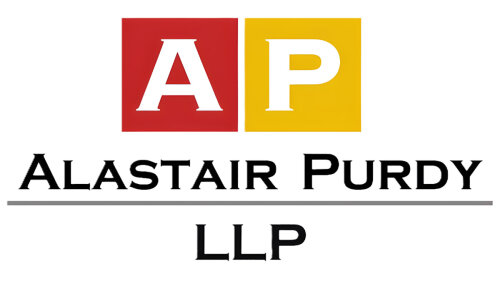Best ADR Mediation & Arbitration Lawyers in Galway
Share your needs with us, get contacted by law firms.
Free. Takes 2 min.
List of the best lawyers in Galway, Ireland
About ADR Mediation & Arbitration Law in Galway, Ireland
Alternative Dispute Resolution (ADR), encompassing mediation and arbitration, is an increasingly popular method for resolving disputes outside traditional court settings in Galway, Ireland. These methods provide a framework for parties to come to an agreeable solution with the help of a neutral third party, either a mediator or arbitrator. Mediation is a collaborative process allowing parties to negotiate solutions whereas arbitration involves a binding decision made by the arbitrator. Both methods are acknowledged for their efficiency, cost-effectiveness, and confidentiality compared to conventional litigation.
Why You May Need a Lawyer
Individuals or businesses may seek legal guidance for ADR processes in several situations, such as contractual disputes, family law matters, workplace conflicts, or commercial disagreements. Lawyers skilled in ADR can help parties understand their rights, prepare for sessions, and ensure fair practices throughout the process. Legal professionals can also assist in drafting settlement agreements or challenging the enforcement of arbitration awards if necessary.
Local Laws Overview
In Galway, ADR processes are supported by Irish national legislation. The Mediation Act 2017 is central to mediation practices, promoting its use and providing a legal framework for its implementation. The Arbitration Act 2010 aligns with the UNCITRAL Model Law, facilitating arbitration processes. Local solicitors familiar with these statutes can offer substantial aid in navigating and adhering to these regulations, ensuring effective dispute resolution.
Frequently Asked Questions
What is the difference between mediation and arbitration?
Mediation involves a neutral third party helping disputing parties find a mutually agreeable solution, while arbitration involves a binding decision made by an arbitrator after considering evidence and arguments.
Is participation in mediation or arbitration mandatory?
Participation in mediation is generally voluntary unless contract stipulations or court orders require it. Arbitration may be mandatory if it is stipulated in a contract clause.
Are ADR decisions legally binding?
Mediation outcomes are not binding unless formalized in a settlement agreement. Arbitration decisions are legally binding and enforceable, similar to a court judgement.
What types of disputes are suitable for ADR?
ADR is often appropriate for commercial, contract, employment, family, and consumer disputes. However, matters like criminal cases are typically resolved through traditional court processes.
How long does an ADR process take?
The duration varies significantly, but both mediation and arbitration are generally faster than court proceedings, often taking weeks to a few months.
Is ADR confidential?
ADR processes are private, and confidentiality is one of their core benefits, with details only shared among involved parties unless they agree otherwise.
Do I need a lawyer during the ADR process?
Having a lawyer is not mandatory but highly advisable. A lawyer can provide crucial guidance throughout the process, ensuring your interests are adequately represented.
What happens if a party does not comply with an ADR decision?
For arbitration, noncompliance can result in court enforcement. Mediation agreements not honored may lead parties back to court while referencing the agreement.
Can an arbitration award be appealed?
Arbitration awards are generally final and binding, with very limited scope for appeal, usually related to procedural issues or violations.
How can I start an ADR process?
Initiate the process by agreeing with the other party to try ADR, selecting a mediator or arbitrator, and preparing your case with legal guidance if needed.
Additional Resources
For more assistance, consider reaching out to the following:
- The Irish Mediation Institute, which offers comprehensive resources and accredited mediators.
- The Chartered Institute of Arbitrators - Irish Branch, providing support and qualified arbitrators.
- Consulting the Law Society of Ireland for guidance on choosing legal professionals experienced in ADR.
Next Steps
If you require legal assistance in ADR mediation and arbitration, begin by consulting with a local solicitor who specializes in ADR. They can offer tailored advice and represent your interests. Gather all relevant documentation and contract details related to your dispute, and initiate contact with the other party to discuss the possibility of ADR. Engaging a knowledgeable attorney will help navigate the complexities of the process efficiently and effectively.
Lawzana helps you find the best lawyers and law firms in Galway through a curated and pre-screened list of qualified legal professionals. Our platform offers rankings and detailed profiles of attorneys and law firms, allowing you to compare based on practice areas, including ADR Mediation & Arbitration , experience, and client feedback.
Each profile includes a description of the firm's areas of practice, client reviews, team members and partners, year of establishment, spoken languages, office locations, contact information, social media presence, and any published articles or resources. Most firms on our platform speak English and are experienced in both local and international legal matters.
Get a quote from top-rated law firms in Galway, Ireland — quickly, securely, and without unnecessary hassle.
Disclaimer:
The information provided on this page is for general informational purposes only and does not constitute legal advice. While we strive to ensure the accuracy and relevance of the content, legal information may change over time, and interpretations of the law can vary. You should always consult with a qualified legal professional for advice specific to your situation.
We disclaim all liability for actions taken or not taken based on the content of this page. If you believe any information is incorrect or outdated, please contact us, and we will review and update it where appropriate.














